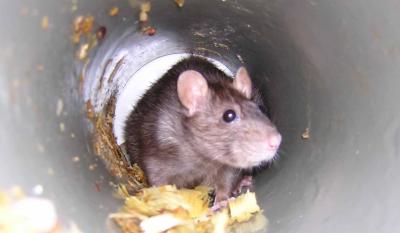Surrey based pest control company, Cleankill Pest Control, is warning customers of the threat posed by rats during the winter months.
Pest control experts have seen an increase in the number of call-outs from businesses and homeowners looking to rid themselves of a rat problem.
Managing Director Paul Bates explains: “After a warm autumn, during which rat numbers will have grown, a sudden drop in temperatures means rats, like all of us, will be looking for somewhere warm and dry to see out the winter months. Our homes don’t just supply this, they also provide food - making our homes the ideal habitat for them. It isn’t a surprise that as temperatures drop, we see an increase in rodent problems.”
Paul also notes that another factor might also be forcing the rats into our homes: “This year, some areas have already seen significant flooding. With their nests waterlogged, rats become homeless, another factor in pushing them towards making a new home in your home.”
Cleankill Pest Control advocates prevention over cure. A few simple steps can help reduce the likelihood of your home become a rat’s home. Rats will access your home through the smallest of gaps, so one very good way to prevent an infestation is to make your home rat-proof.
The first step is to find and replace any broken air bricks, check any gaps around doors and make sure all drain pipes are fitted with ‘interceptors’. This will reduce the chances of the rats entering your home.
However, as Paul explains, “Often when carrying out pest control surveys we find external doors that simply don’t fit properly. A mouse can get in through a gap the width of a pencil and a rat needs no more than a two-centimetre gap. Blocking these holes must be your first defence again rats and other rodents.
“Once you’ve removed any obvious entry points into your home, the next thing you should do is remove any potential nesting materials and areas. Make sure your yard and garden is cleared in order to discourage nesting. Finally, make sure all food is disposed of into sealed bins and try to avoid leaving sources of food around. This will include the compost heap, which should be covered.”
Without direct access to your home, and without easy sources of food and nesting materials, rats will find your home less inviting. However, should you find you are sharing your home with an unwanted guest, it is vital you do something about it quickly. In addition to leaving droppings round your home, rats can spread disease to humans, will foul your water tanks and chew on wood or electrical wires - potentially creating a fire hazard.
Should you suspect you have rat problem, Paul advises you to call in a professional pest controller as soon as possible:
“Rat colonies can grow as quite alarming rates and, where you may have thought you were only sharing with one or two rats, you’ll soon find you are sharing with a very large family. We recommend against DIY pest control in order to maximise the effectiveness of the treatment and minimise the amount of rodenticides being used. A professional will know the right places to treat in order to be most effective, while keeping your family and pets safe.”
Cleankill Pest Control started in 1995 and is a specialist provider of pest control services to retail, commercial and industrial properties throughout the UK. The company deals with ‘distress’ pests such as wasps and fleas, as well as preventative maintenance against public health pests such as mice and rats. Cleankill Pest Control can also clear and proof buildings against pest birds. The company prides itself on fast and efficient service delivery and aims to be recognised as a market leader for innovation and new pest control techniques. For further information go to www.cleankill.co.uk or call 0800 056 5477.
